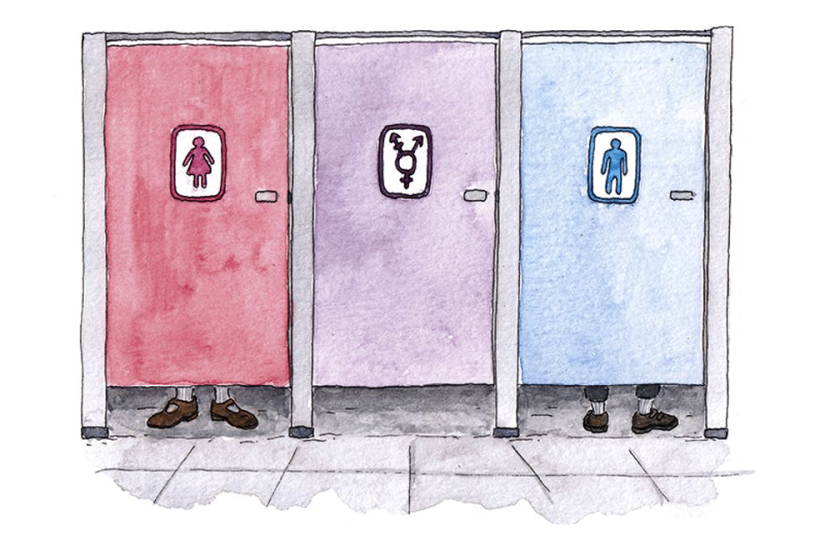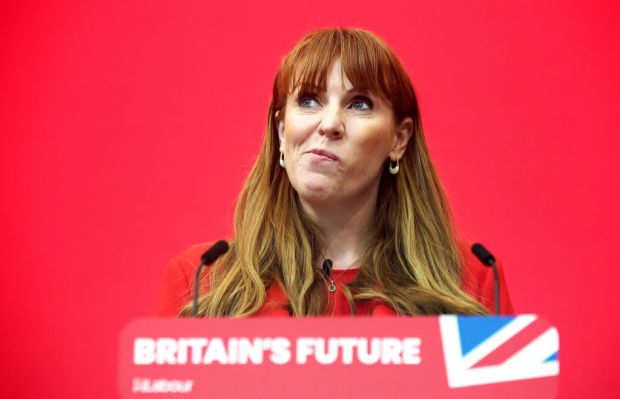August is traditionally the silly season in politics but we seem to be stuck in silly decade of policy, and not in a funny way. Even ten years ago, few might have imagined that the minister for equalities would have needed to open up a debate on toilets. Yesterday, Kemi Badenoch announced that the government is publishing draft guidance that will protect the dignity, privacy and safety of all. In particular, she insisted that so-called gender-neutral toilets are no longer an option.
In this country, a woman would not be committing a criminal offence if she chose to use the cubicle in the men’s to avoid a long queue
The problem is less about toilets than language and assumptions. As Badenoch pointed out, gender-neutral does not mean unisex. Unisex toilets have been around for generations. The facilities in my house are unisex, as is the toilet on the train I used to get home on Saturday. They are fully self-enclosed rooms with hand basins, soap and water. Some coffee shops with limited space might have only one unisex toilet for everyone to use. We all know where we stand, though it would be a lot better if men sat.
Gender-neutral toilets are a rather different experience. At best, each toilet is in a cubicle with floor-to-ceiling partitions, but all the hand basins are plumbed in alongside each other in a communal area. Privacy from the other sex is limited, to say the least. Aside from the valid concerns about predatory men taking advantage – or inconsiderate men not bothering to close the door – it’s awkward and embarrassing for both sexes to share those sorts of spaces.
That has not stopped public and private sector organisations from trumpeting gender-neutral facilities as some sort of progressive leap forward. Back in 2017, Sadiq Khan’s new London plan called for more gender-neutral toilets in the capital. The outcome was depressingly predictable – a reduction in the number of facilities reserved for women – but it’s one that the mob on social media would rather we didn’t hear about. When, in 2019, Sarah Ditum catalogued her experience at the Old Vic in The Stage, the online theatre website withdrew her piece following ‘strong responses’.
More recently, Joan Smith was confronted with a bank of five urinals when she braved the ‘all gender’ toilets at The Lyric Hammersmith Theatre. These are not the toilets that I want to see either. The argument, of course, has been that going gender-neutral is somehow kind to trans people like me. When he launched his grand plan, Khan suggested that it might make trans and non-binary people more comfortable. That is hardly likely to happen when others are decidedly uncomfortable – we are human beings and we pick up the signals.
Rather than throw everyone in together, the best outcome is surely to offer a mix of provision, as Badenoch proposes, ‘separate single-sex toilets for women and men and/or a self-contained, private toilet as a minimum.’ Communal facilities are segregated by sex, while individual unisex toilets protect the privacy of those who do not wish to share with other members of their sex, for whatever reason. Long before I transitioned, those spaces were useful to me when my children were very young. The goal, surely, is to satisfy everybody’s needs without compromising anyone else’s rights.
This is not rocket science. Where there is lots of space, several additional cubicles can go alongside the traditional men’s and women’s. At the other extreme, a single unisex toilet might well be the only answer. Those looking to create problems rather than find solutions will likely look for the difficult cases – old buildings, perhaps, where it is impossible to put anything alongside the established male and female toilets. If that’s genuinely the case then so be it, but whataboutery must not be allowed to hinder progress elsewhere.
We’ve never had American-style ‘bathroom bills’ in the UK. In this country, a woman would not be committing a criminal offence if she chose to use the cubicle in the men’s to avoid a long queue. But the British sense of fair play has been tested – to the limit in some cases – by images of people whom we all know to be men self-identifying their way into women’s toilets. That needs to stop. To those who complain that they ‘only want to pee’, let them do just that – but in the privacy of their own company.
Got something to add? Join the discussion and comment below.
Get 10 issues for just $10
Subscribe to The Spectator Australia today for the next 10 magazine issues, plus full online access, for just $10.




















Comments
Don't miss out
Join the conversation with other Spectator Australia readers. Subscribe to leave a comment.
SUBSCRIBEAlready a subscriber? Log in